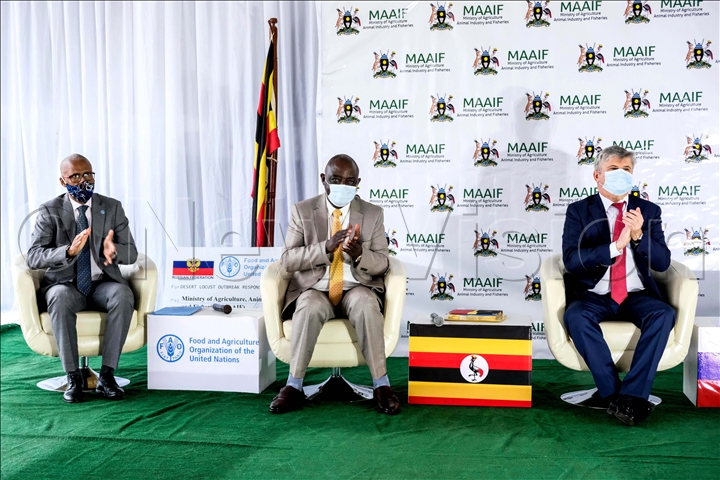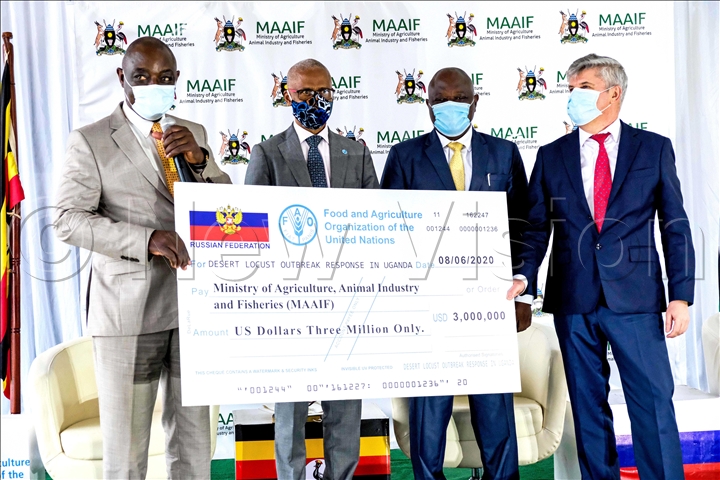Russia funds Uganda government on locust control
Despite several interventions by the government, scientists have expressed fear that there will be bigger swarms.
UGANDA | RUSSIA | AGRICULTURE
The Russian Federation through the UN Food and Agriculture Organization has donated $3m to the Uganda government towards the eradication of the desert locusts in North Eastern Uganda.
Handing over the dummy cheque to the Minister of Agriculture Animal, Industry and Fisheries, Vincent Bamulangaki Ssempijja at the ministry headquarters in Entebbe, His Excellency, Alexander Polyakov, the Russian Ambassador to Uganda, said the donation comes in at a crucial moment to scale up efforts of the country to fight the locusts.
Ssempijja revealed that despite several interventions by the government, scientists have expressed fear that there will be bigger swarms depending on the direction of the winds and the weather in the affected areas.

Polyakov revealed that the funds will go towards the purchase of pesticides, fueling vehicles and sprayers as well as employment and training of personnel for pest elimination.
"During these challenging times amidst the COVID-19 pandemic this donation came at a crucial moment to scale up the government's efforts, in fighting the locusts," Polyakov said.
He said the donation is part of the $10m to Food and Agriculture Organization (FAO) to fund the regional efforts to address the catastrophic desert locust invasion in East Africa.

Polyakov said it is his government's strong belief that Uganda in cooperation with the United Nation and support from Russia will be able to put an end to this scourge and help the affected communities get back on their feet.
In his remarks, Ssempijja said the donation is important in developing cooperation between the two countries.
Ssempijja revealed that despite several interventions by the government, scientists have expressed fear that there will be bigger swarms depending on the direction of the winds and the weather in the affected areas.
"The threat is still high, and experts have warned that depending on the weather, the swarms will increase. Our Kenyan counterparts have also set up efforts to ensure that they stop the swarm," Ssempijja explained.
He further requested that the funds be used in the provision of 10 field trucks for manpower transport, 10 trucks for transportation of pesticides, pumps, empty containers, five double cabins.

Other requirements he said, were the 26 motorcycles, desert locust surveillance equipment for district teams, construction of storage facilities, and field camping equipment.
The country representative FAO, Antonio Querido, said Uganda is among the 10 African countries globally dealing with the locust adding that there is a likelihood of the wider spread of the desert locusts in the affected areas.
Querido said that FAO is renewing its commitment and revising the appeal of the ministry in regard to the pesticide control.

Background
The country had two invasions on 14 April and 16 May this year.
During the last invasion of 16 May, a mixture of mature and immature locust swarms covering over 400 hectares entered Kapedo and Karenga in the North-Eastern part of Uganda and this was controlled by DLCO EA aircraft.
The last swarm was on the 20 May and more swarms were observed that settled in Kaabong and Kathile and Karenga district.